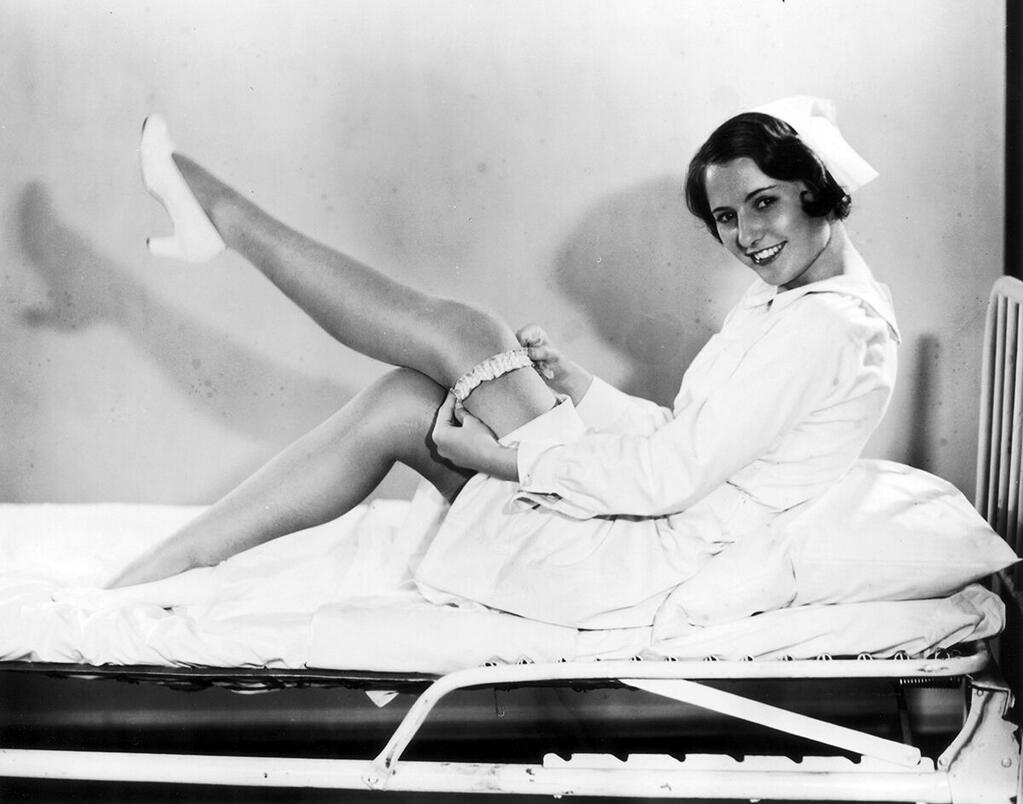Bill W
I just read Wild Bill Wellman: Hollywood Rebel. It's written by his son, William Wellman, Jr., who grew up to be an actor, but nowhere near as famous as his director father. Wellman was one of the most successful directors in Hollywood history, but was he any good? At the very least, he was a workhorse, who knew how to turn out features at a regular clip--he made over 80 in his career, ones that tended to make money, and sometimes were more than just hits.
Wellman had quite a life before getting into movies. Born on Leap Year in 1896, he grew up a juvenile delinquent, and then became a great flier in WWI, winning the Croix De Guerre. His war experience helped him not only as an action director, but as someone who knew how to control a set--he was more than willing to bully people to get his way.
In the 1920s he found himself in Hollywood, and his fame as a pilot helped him meet people. Douglas Fairbanks, maybe the biggest star of them all, hired him as an actor. He soon discovered he wanted to be on the other side of the camera, and in a few years worked his way up from messenger boy to director. It helped he was hardworking and talented, and also that he had connections--when the studio heads saw him talking to General Black Jack Pershing they were impressed.
Wellman started turning out cheap, profitable pictures, often Westerns. He did have trouble getting along with the suits, and sometimes even got into fights. He also had trouble with women. He married five, finally hitting the jackpot in 1934 with Dorothy Coonan. They stayed married until his death in 1975, and had seven kids.
Late in the silent era, Paramount decided to do a huge action picture about flying, called Wings. Rather than use one of their A-directors, they took a chance with the guy who actually knew about flying. The film was tremendously expensive, and a hard shoot, but Wellman delivered, and Wings, released in 1927, became one of the biggest hits of the decade--the Star Wars of its day. It also won the first Best Picture Oscar.
Oddly, Wellman was then sent back to churning out smaller pictures, rarely having his choice of assignment. He left Paramount for Warner Brothers, where he worked with Darryl Zanuck, who virtually ran the place. Here he made another classic of its genre, The Public Enemy (1931). It's maybe the greatest gangster picture. As soon as Jimmy Cagney shoved a grapefruit in his girl's face, he became a star. He was originally cast in the best friend role, but Wellman and Zanuck switched the parts when they saw the early rushes.
Wellman made some other fascinating pictures at WB, such as Night Nurse, Heroes For Sale and Wild Boys Of The Road. He liked to try every genre, and it can be hard to tell his style, except it's mostly no-nonsense, with the story always moving ahead (Zanuck had some say about that) and solid but generally not distracting camera work.
He made The Call Of The Wild at MGM, with Clark Gable and Loretta Young, and then started working with independent producer David O. Selznick. Out of this collaboration came two well-remembered films, both in glorious Technicolor at a time when black and white was the norm--A Star Is Born (the first version, and many think the best) and Nothing Sacred (a comedy with the queen of screwball, Carole Lombard). He also helped out for an uncredited day or two on Selznick's greatest production, Gone With The Wind.
In 1939, he went to work at the big studios again. At Paramount he made Beau Geste starring Gary Cooper. At Twentieth Century Fox he made the Ginger Rogers comedy Roxie Hart--based on the hit play Chicago which would eventually be the hit musical Chicago. He also made The Ox-Bow Incident there, a "serious" Western starring Henry Fonda. He went on in the mid to late 1940s to create some highly regarded war films, including The Story Of G.I. Joe at United Artists, and Battleground at MGM.
He worked steadily in the 1950s, including a number of films starring John Wayne, such as Islands In The Sky and The High And The Mighty. (He got three Oscar nominations as director for A Star Is Born, Battleground and The High And The Mighty, only winning a shared Oscar for the original story of A Star Is Born.) His last film, released in 1958, was another flying picture, Lafayette Escadrille.
The book isn't that well written--perhaps we should expect that from his son, who shares inside information, but sometimes too much of minor mishaps and practical jokes that aren't as interesting as Wellman's film career. But it gets the job done.
As for Wellman the director, it's hard to know what to think of him. I think many of his "classics"--A Star Is Born, Nothing Sacred, The Ox-Bow Incident, The High And The Mighty and others--are overrated. But if he made a fair number of middling features, and not that many great films, he made more than his share of decent titles. He'll be remembered.


_03.jpg)



0 Comments:
Post a Comment
<< Home